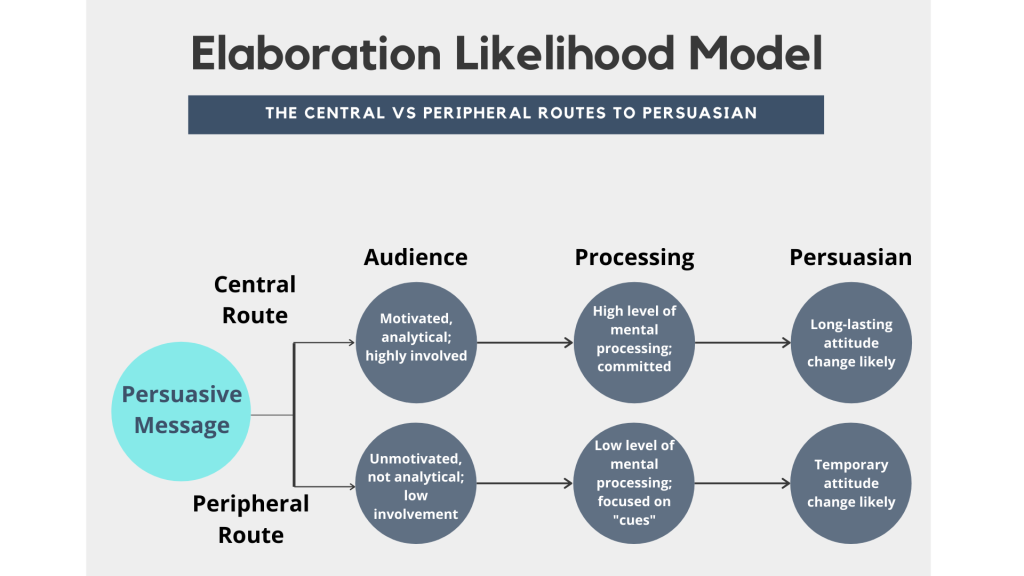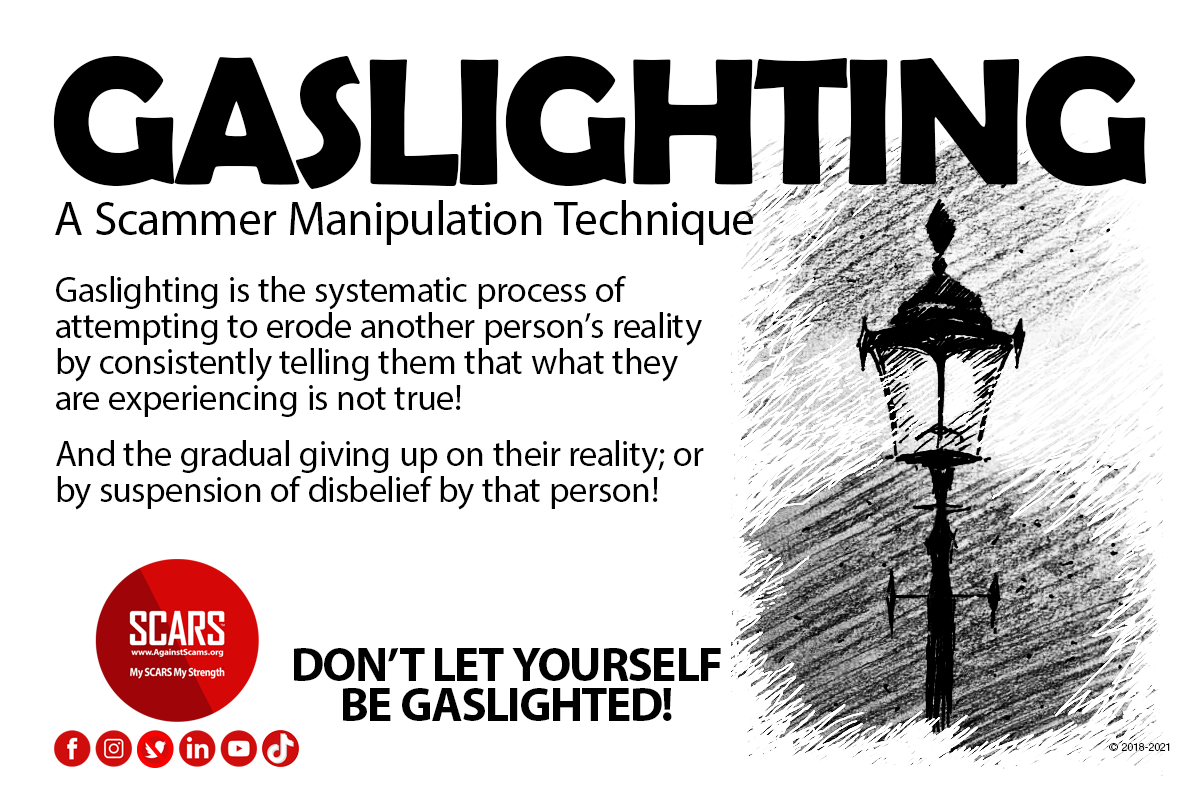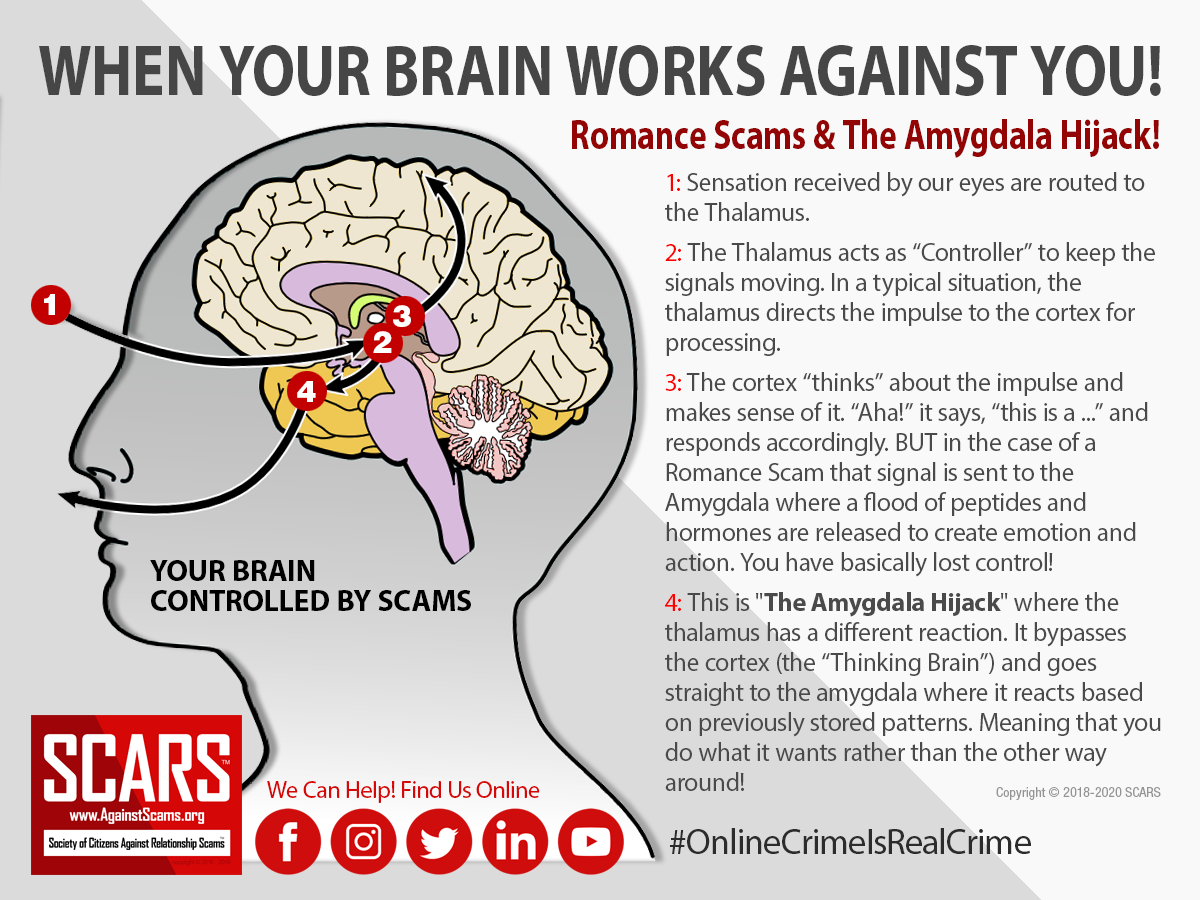
SCARS Institute’s Encyclopedia of Scams™ Published Continuously for 25 Years

Authors:
• Tim McGuinness, Ph.D., DFin, MCPO, MAnth – Anthropologist, Scientist, Director of the Society of Citizens Against Relationship Scams Inc.
• Vianey Gonzalez – Psychologist, Certified Deception Professional, Psychology Advisory Panel & Director of the Society of Citizens Against Relationship Scams Inc.
Scammers Learn A Whole Toolkit Full Of Psychological Manipulation Techniques! Paradoxical Persuasion Is One That Can Be Very Effective!
What is Paradoxical Persuasion?
Paradoxical persuasion is a persuasion technique that uses seemingly contradictory or illogical statements to influence people’s beliefs or behavior. It is based on the idea that people are more likely to be persuaded by messages that are unexpected or thought-provoking.
Paradoxical persuasion can be used in a variety of contexts, such as advertising, marketing, and psychotherapy. For example, a company might use paradoxical persuasion to advertise a product by claiming that it is the “best-selling product that nobody buys.” This statement is contradictory, but it is also attention-grabbing and may make people more likely to learn more about the product.
Another example of paradoxical persuasion is the use of reverse psychology. Reverse psychology is a technique where you tell someone to do the opposite of what you want them to do in order to get them to do what you want them to do. For example, a parent might tell their child not to eat their cookies in order to make them want to eat their cookies more.
Paradoxical persuasion can be an effective way to influence people, but it is important to use it carefully. If used incorrectly, it can backfire and make people more resistant to persuasion.
Here are some tips for using paradoxical persuasion effectively:
- Make sure your message is clear and concise.
- Be unexpected and thought-provoking.
- Use humor or irony to make your message more engaging.
- Be credible and trustworthy.
- Use paradoxical persuasion sparingly.
It is also important to note that paradoxical persuasion is not a magic bullet. It is only one of many persuasion techniques that are used to influence scam victims.
The Theory behind Paradoxical Persuasion
Paradoxical persuasion is a persuasion technique that uses seemingly contradictory or illogical statements to influence people’s beliefs or behavior. It is based on the idea that people are more likely to be persuaded by messages that are unexpected or thought-provoking.
There are a few different theories about how paradoxical persuasion works. One theory is that it causes people to think more deeply about the issue at hand. When people are presented with a paradoxical statement, they have to stop and think about it in order to make sense of it. This process of thinking can make people more open to persuasion.
Another theory is that paradoxical persuasion works by creating a sense of cognitive dissonance. Cognitive dissonance is a state of discomfort that occurs when people hold two conflicting beliefs or attitudes. When people are presented with a paradoxical statement, it can create a state of cognitive dissonance. In order to reduce this discomfort, people may be more likely to change their beliefs or attitudes to align with the paradoxical statement.
Paradoxical persuasion can also work by appealing to people’s emotions. For example, a paradoxical statement may make people feel curious, amused, or even challenged. These emotions can make people more likely to pay attention to the message and be persuaded by it.
Paradoxical persuasion can have a number of effects on the brain. One effect is that it can increase activity in the prefrontal cortex. The prefrontal cortex is the part of the brain that is responsible for higher-order cognitive functions, such as planning, decision-making, and problem-solving. When the prefrontal cortex is more active, people are more likely to think critically about the information they are presented with and to be persuaded by messages that are well-reasoned.
Another effect of paradoxical persuasion is that it can increase the release of dopamine in the brain. Dopamine is a neurotransmitter that is associated with pleasure and reward. When people are exposed to a paradoxical statement, it can release dopamine in the brain, which can make them more likely to be persuaded by the message.
Paradoxical persuasion can be a very effective way to influence people’s beliefs and behavior.
Examples of how Paradoxical Persuasion works in real life
- A parent might tell their child not to eat their cookies in order to make them want to eat their cookies more. This is because the child is more likely to be intrigued by the forbidden fruit and want to do the opposite of what they are told.
- A company might advertise a product by claiming that it is the “best-selling product that nobody buys.” This statement is contradictory, but it is also attention-grabbing and may make people more likely to learn more about the product.
- A salesperson might tell a customer that they are not trying to sell them anything, even though they are. This can lower the customer’s defenses and make them more receptive to the salesperson’s message.
- A therapist might use paradoxical persuasion to help a client with anxiety. For example, the therapist might tell the client to “be more anxious” or to “embrace their anxiety.” This can help the client to see their anxiety in a different light and to reduce their fear of it.
- A politician might use paradoxical persuasion to get elected. For example, a politician might say something like, “I’m not a politician. I’m just a regular person who wants to make a difference.” This can make the politician seem more relatable and trustworthy to voters.
How Paradoxical Persuasion is used in the commission of Scams and Fraud
Paradoxical persuasion can be used in the commission of scams and fraud in a number of ways. It is typically used as a part of gaslighting and other methods.
Here are a few examples:
- To create a sense of urgency. Scammers may use paradoxical persuasion to create a sense of urgency and make their victims feel like they need to act quickly or they will miss out on a great opportunity. For example, a scammer might say something like, “This offer is only available for a limited time, so act now!” or “If you don’t invest in this opportunity today, you’ll regret it tomorrow!”
- To lower the victim’s defenses. Scammers may use paradoxical persuasion to lower the victim’s defenses and make them more susceptible to being scammed. For example, a scammer might say something like, “I’m not trying to scam you. I’m just trying to help you make money.” or “I’m not like other scammers. I’m honest and trustworthy.”
- To gain the victim’s trust. Scammers may use paradoxical persuasion to gain the victim’s trust and make them more likely to believe their claims. For example, a scammer might say something like, “I’m not going to ask you for any money upfront. You can trust me.” or “I’m not going to pressure you into anything. You can take your time and think about it.”
Romance scammers use paradoxical persuasion to control their victims in a number of ways, including:
- Creating a sense of urgency and excitement. Romance scammers often create a sense of urgency and excitement in their victims by telling them that they are in love with them and that they need to be together. They may also tell their victims that they are leaving the country soon or that they are in danger and need money. This sense of urgency can make victims more likely to make rash decisions and give the scammers money or personal information.
- Isolating their victims from friends and family. Romance scammers often try to isolate their victims from their friends and family. They may do this by making the victims feel like their friends and family don’t understand their relationship or that they are jealous of the victim’s happiness. By isolating their victims, romance scammers can make them more vulnerable to their control. This is a part of the Gaslighting manipulation.
- Using guilt and shame to manipulate their victims. Romance scammers may use guilt and shame to manipulate their victims into doing what they want. For example, they may tell their victims that they are being selfish or that they don’t love them enough if they don’t give them money or personal information. This can make victims feel ashamed and guilty, and it can make them more likely to comply with the scammer’s demands.
- Using paradoxical language to keep their victims off balance. Romance scammers often use paradoxical language to keep their victims off balance and to make them more susceptible to persuasion. For example, they may say things like, “I love you, but you have to prove your love for me by sending me money.” or “I trust you, but I need to see your bank account information to make sure you’re not a scammer.” This paradoxical language can make victims confused and disoriented, and it can make them more likely to believe the scammer’s lies.
Here are some specific examples of how romance scammers use paradoxical persuasion:
- A scammer tells their victim that they are the only person they can trust. This can make the victim feel isolated and dependent on the scammer.
- A scammer tells their victim that they love them unconditionally, but that they need to prove their love by sending them money. This is a classic example of paradoxical persuasion. It is designed to make the victim feel guilty and ashamed if they don’t send the scammer money.
- A scammer tells their victim that they are leaving the country soon and that they need money to pay for their travel expenses. This creates a sense of urgency and makes the victim more likely to send the scammer money without thinking twice about it.
Avoiding the Paradoxical Persuasion Technique
It is important to be aware of how paradoxical persuasion is used in scams and fraud.
If you are ever unsure about something, it is always best to err on the side of caution and walk away.
Here are some tips for protecting yourself from scams and fraud:
- Be skeptical of claims that seem too good to be true.
- Don’t feel pressured to make a quick decision.
- Talk to someone you trust about your concerns.
- Do your research before sending money, investing in anything, or giving out personal information that can be used against you.
More:
- What is the Purpose of Gaslighting? (romancescamsnow.com)
- Gaslighting – Destroying A Victim’s Sense Of Reality Or Truth [Updated] (romancescamsnow.com)
- The Amygdala Hijack! A SCARS™ Guide [Infographic][Updated] (romancescamsnow.com)
- Suggestibility – A Victim Vulnerability (romancescamsnow.com)
- Scammer Methods – A Scammer’s Primer – Part 3: The Steps – Grooming & Manipulation (romancescamsnow.com)
- Equivocation – The Magician’s Choice – The Arts Of Manipulation (romancescamsnow.com)
- Love Bombing And How Romance Scam Victims Are Forced To Feel (romancescamsnow.com)
- Conformity & Romance Scams And How It Affects Scam Victims 2023 (scamsnow.com)
- Shifting Baseline Syndrome (SBS) And Scam Awareness (scamsnow.com)
- 7 Psychological Principles of Scams (romancescamsnow.com)
- Rug-Pull – A Scammer Tactic (romancescamsnow.com)
- Social Delivery – Buying Your Affection (romancescamsnow.com)
- Save Me From A Life In Crime – Romance Scams (romancescamsnow.com)
- Living under Manipulation for Too Long Leaves Victims … (romancescamsnow.com)
-/ 30 /-
What do you think about this?
Please share your thoughts in a comment below!
Table of Contents
- A Scammer Psychological Manipulation Technique
- Scammers Learn A Whole Toolkit Full Of Psychological Manipulation Techniques! Paradoxical Persuasion Is One That Can Be Very Effective!
- What is Paradoxical Persuasion?
- The Theory behind Paradoxical Persuasion
- Examples of how Paradoxical Persuasion works in real life
- How Paradoxical Persuasion is used in the commission of Scams and Fraud
- Avoiding the Paradoxical Persuasion Technique
- More:
LEAVE A COMMENT?
Thank you for your comment. You may receive an email to follow up. We never share your data with marketers.
Recent Comments
On Other Articles
- on Love Bombing And How Romance Scam Victims Are Forced To Feel: “I was love bombed to the point that I would do just about anything for the scammer(s). I was told…” Feb 11, 14:24
- on Dani Daniels (Kira Lee Orsag): Another Scammer’s Favorite: “You provide a valuable service! I wish more people knew about it!” Feb 10, 15:05
- on Danielle Delaunay/Danielle Genevieve – Stolen Identity/Stolen Photos – Impersonation Victim UPDATED 2024: “We highly recommend that you simply turn away form the scam and scammers, and focus on the development of a…” Feb 4, 19:47
- on The Art Of Deception: The Fundamental Principals Of Successful Deceptions – 2024: “I experienced many of the deceptive tactics that romance scammers use. I was told various stories of hardship and why…” Feb 4, 15:27
- on Danielle Delaunay/Danielle Genevieve – Stolen Identity/Stolen Photos – Impersonation Victim UPDATED 2024: “Yes, I’m in that exact situation also. “Danielle” has seriously scammed me for 3 years now. “She” (he) doesn’t know…” Feb 4, 14:58
- on An Essay on Justice and Money Recovery – 2026: “you are so right I accidentally clicked on online justice I signed an agreement for 12k upfront but cd only…” Feb 3, 08:16
- on The SCARS Institute Top 50 Celebrity Impersonation Scams – 2025: “Quora has had visits from scammers pretending to be Keanu Reeves and Paul McCartney in 2025 and 2026.” Jan 27, 17:45
- on Scam Victims Should Limit Their Exposure To Scam News & Scammer Photos: “I used to look at scammers photos all the time; however, I don’t feel the need to do it anymore.…” Jan 26, 23:19
- on After A Scam, No One Can Tell You How You Will React: “This article was very informative, my scams happened 5 years ago; however, l do remember several of those emotions and/or…” Jan 23, 17:17
- on Situational Awareness and How Trauma Makes Scam Victims Less Safe – 2024: “I need to be more observant and I am practicing situational awareness. I’m saving this article to remind me of…” Jan 21, 22:55
ARTICLE META
Important Information for New Scam Victims
- Please visit www.ScamVictimsSupport.org – a SCARS Website for New Scam Victims & Sextortion Victims
- Enroll in FREE SCARS Scam Survivor’s School now at www.SCARSeducation.org
- Please visit www.ScamPsychology.org – to more fully understand the psychological concepts involved in scams and scam victim recovery
If you are looking for local trauma counselors please visit counseling.AgainstScams.org or join SCARS for our counseling/therapy benefit: membership.AgainstScams.org
If you need to speak with someone now, you can dial 988 or find phone numbers for crisis hotlines all around the world here: www.opencounseling.com/suicide-hotlines
A Note About Labeling!
We often use the term ‘scam victim’ in our articles, but this is a convenience to help those searching for information in search engines like Google. It is just a convenience and has no deeper meaning. If you have come through such an experience, YOU are a Survivor! It was not your fault. You are not alone! Axios!
A Question of Trust
At the SCARS Institute, we invite you to do your own research on the topics we speak about and publish, Our team investigates the subject being discussed, especially when it comes to understanding the scam victims-survivors experience. You can do Google searches but in many cases, you will have to wade through scientific papers and studies. However, remember that biases and perspectives matter and influence the outcome. Regardless, we encourage you to explore these topics as thoroughly as you can for your own awareness.
Statement About Victim Blaming
SCARS Institute articles examine different aspects of the scam victim experience, as well as those who may have been secondary victims. This work focuses on understanding victimization through the science of victimology, including common psychological and behavioral responses. The purpose is to help victims and survivors understand why these crimes occurred, reduce shame and self-blame, strengthen recovery programs and victim opportunities, and lower the risk of future victimization.
At times, these discussions may sound uncomfortable, overwhelming, or may be mistaken for blame. They are not. Scam victims are never blamed. Our goal is to explain the mechanisms of deception and the human responses that scammers exploit, and the processes that occur after the scam ends, so victims can better understand what happened to them and why it felt convincing at the time, and what the path looks like going forward.
Articles that address the psychology, neurology, physiology, and other characteristics of scams and the victim experience recognize that all people share cognitive and emotional traits that can be manipulated under the right conditions. These characteristics are not flaws. They are normal human functions that criminals deliberately exploit. Victims typically have little awareness of these mechanisms while a scam is unfolding and a very limited ability to control them. Awareness often comes only after the harm has occurred.
By explaining these processes, these articles help victims make sense of their experiences, understand common post-scam reactions, and identify ways to protect themselves moving forward. This knowledge supports recovery by replacing confusion and self-blame with clarity, context, and self-compassion.
Additional educational material on these topics is available at ScamPsychology.org – ScamsNOW.com and other SCARS Institute websites.
Psychology Disclaimer:
All articles about psychology and the human brain on this website are for information & education only
The information provided in this article is intended for educational and self-help purposes only and should not be construed as a substitute for professional therapy or counseling.
While any self-help techniques outlined herein may be beneficial for scam victims seeking to recover from their experience and move towards recovery, it is important to consult with a qualified mental health professional before initiating any course of action. Each individual’s experience and needs are unique, and what works for one person may not be suitable for another.
Additionally, any approach may not be appropriate for individuals with certain pre-existing mental health conditions or trauma histories. It is advisable to seek guidance from a licensed therapist or counselor who can provide personalized support, guidance, and treatment tailored to your specific needs.
If you are experiencing significant distress or emotional difficulties related to a scam or other traumatic event, please consult your doctor or mental health provider for appropriate care and support.
Also read our SCARS Institute Statement about Professional Care for Scam Victims – click here to go to our ScamsNOW.com website.



















My new mantra from this article “ If you are ever unsure about something, it is always best to err on the side of caution and walk away.”